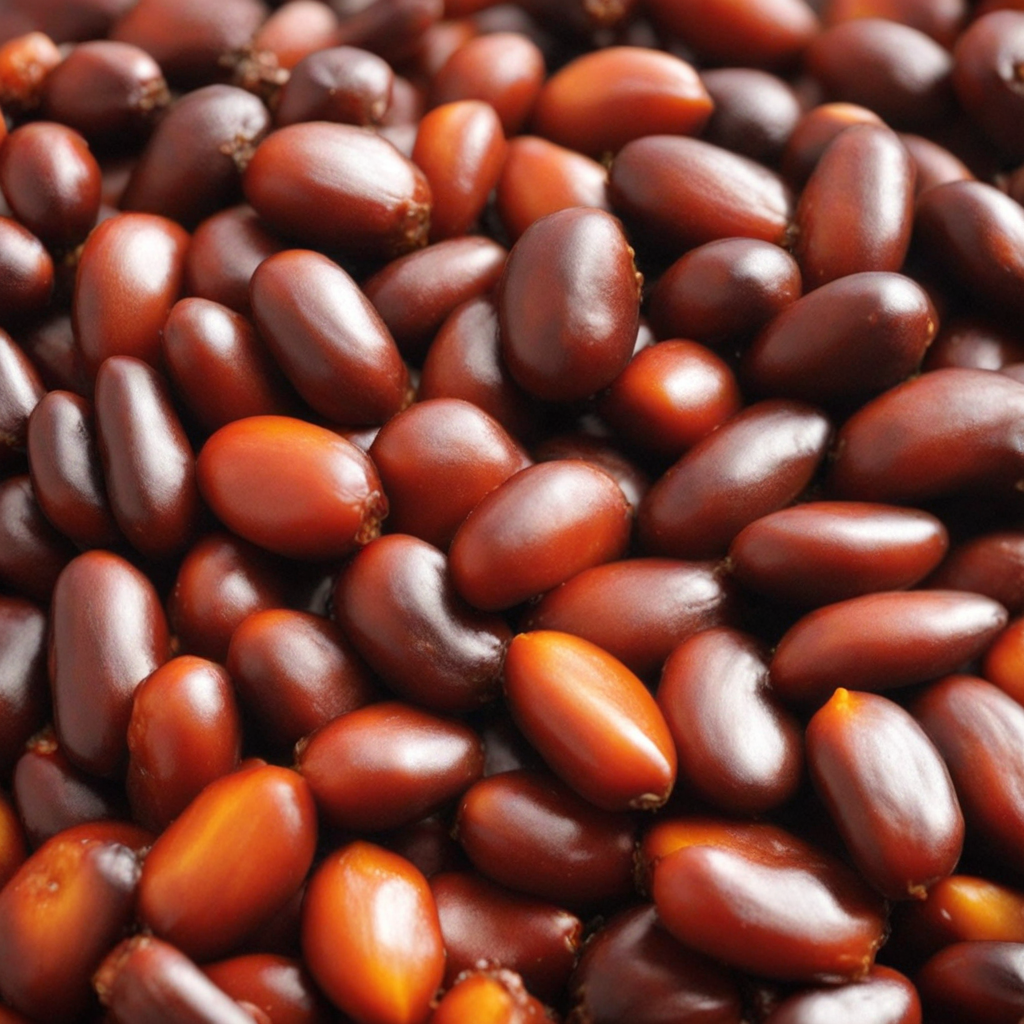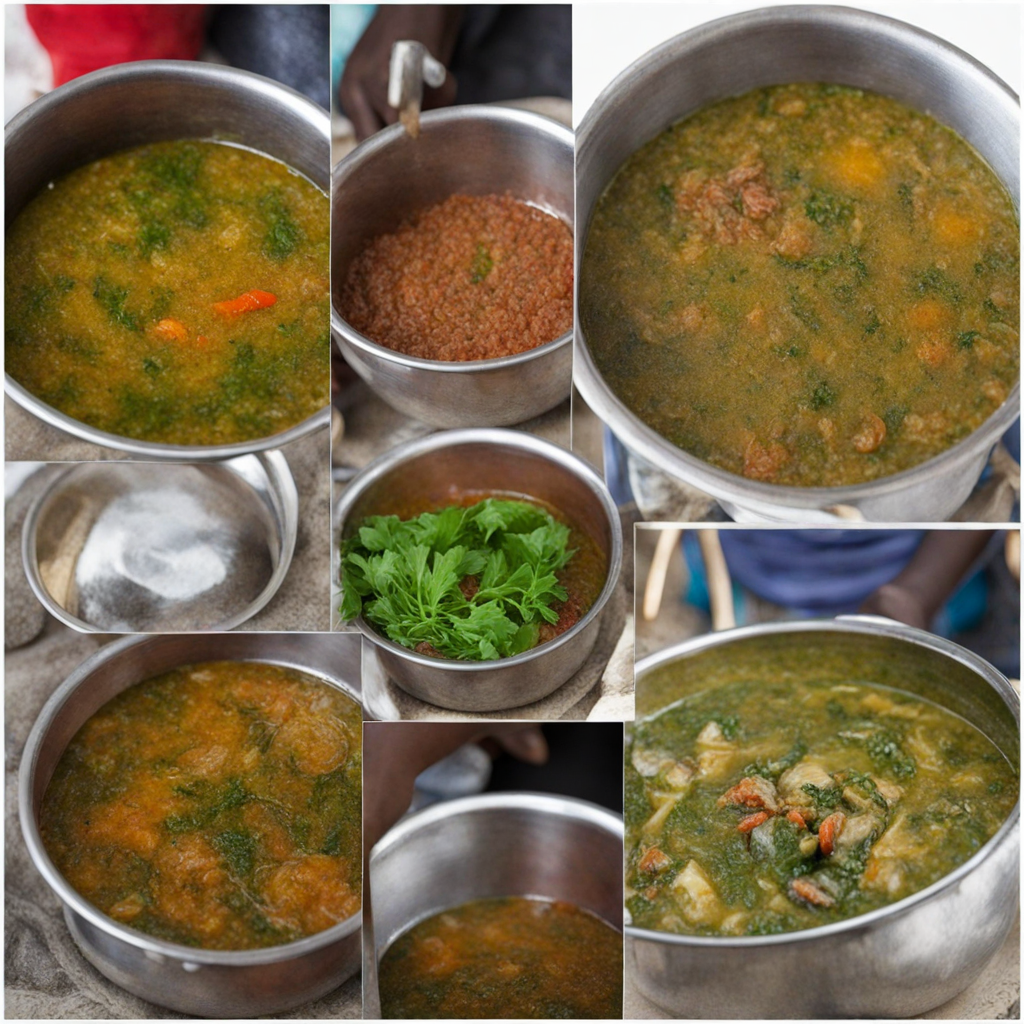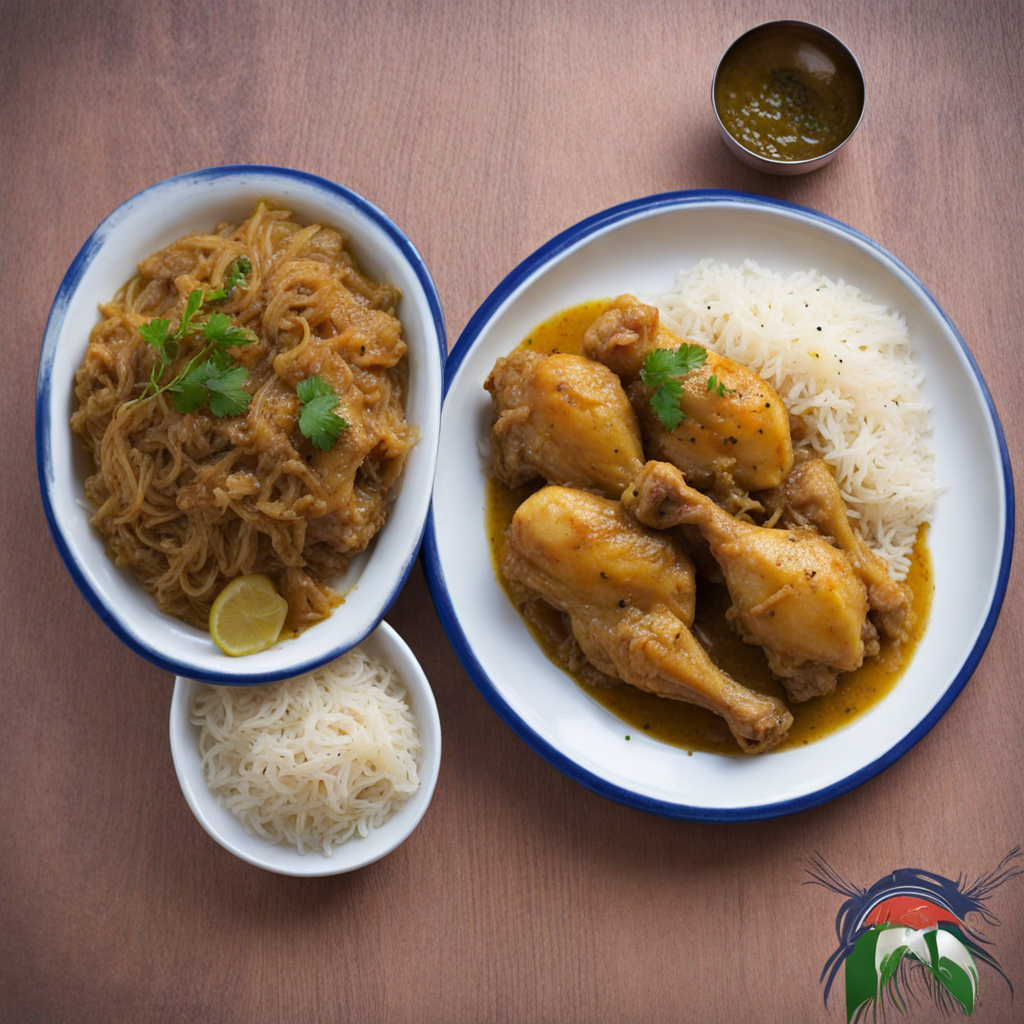Palm Oil Beans
Palm Oil Beans, known locally as "Dendê," are a remarkable culinary treasure from Guinea-Bissau that offers a unique and robust flavor profile. These small, reddish-brown beans are derived from the oil palm fruit, and they possess a rich, nutty taste that is both earthy and slightly sweet. The beans are often used in traditional dishes, enhancing stews and sauces with their creamy texture and distinct flavor. When cooked, they release an aromatic oil that adds depth to any meal, making them a staple in the region's vibrant cuisine. The preparation of Palm Oil Beans typically involves soaking them to soften their texture, followed by boiling or steaming until tender. They can be incorporated into various dishes, such as the beloved Guinean peanut stew or served alongside fish and rice. Their versatility allows them to pair well with a variety of ingredients, including vegetables, meats, and spices, creating a harmonious blend of flavors that is characteristic of West African cooking. The addition of palm oil not only enriches the taste but also contributes to the visual appeal, giving dishes a striking golden hue. Beyond their flavor, Palm Oil Beans are also packed with nutritional benefits. They are a good source of protein and healthy fats, making them an excellent addition to a balanced diet. In Guinea-Bissau, these beans are not just a food item; they are a cultural staple that embodies the warmth and hospitality of the local communities. Exploring dishes made with Palm Oil Beans offers a delicious journey into the heart of Guinean gastronomy, inviting food lovers to savor the rich traditions and flavors of this enchanting West African nation.
How It Became This Dish
Feijão com Óleo de Palma: A Culinary Journey Through Guinea-Bissau The small West African nation of Guinea-Bissau is a melting pot of cultures, languages, and traditions, with a rich history that has profoundly influenced its culinary landscape. Among its many traditional dishes, 'Feijão com Óleo de Palma' stands out not just for its flavors but for its deep cultural significance. This dish, a simple yet hearty combination of beans and palm oil, encapsulates the essence of Guinea-Bissau's agricultural practices, social customs, and historical influences. Origins of Feijão com Óleo de Palma The origins of 'Feijão com Óleo de Palma' can be traced back to the agricultural practices of the indigenous communities in the region. The cultivation of beans, particularly varieties like black-eyed peas and cowpeas, has long been a staple in the diets of West African peoples. Beans are not only a rich source of protein but also an essential crop that thrives in the tropical climate of Guinea-Bissau. Palm oil, derived from the fruit of the oil palm tree, has been a significant part of West African cuisine for centuries. The cultivation of oil palms is believed to have originated in West Africa before spreading to other tropical regions around the world. This versatile oil, known for its high smoke point and rich flavor, has been used in cooking, as a condiment, and even in traditional medicine. The use of palm oil in 'Feijão com Óleo de Palma' embodies the resourcefulness of the local people, utilizing what the land provides to create nourishing meals. Cultural Significance In Guinea-Bissau, food is not merely sustenance; it is a vital part of social identity and cultural expression. 'Feijão com Óleo de Palma' is often served in communal settings, reflecting the importance of sharing meals among family and friends. The act of eating together fosters a sense of community, reinforcing bonds and traditions that have been passed down through generations. Moreover, beans are often associated with prosperity and fertility in many African cultures, including that of Guinea-Bissau. The cultivation of beans is celebrated during harvest festivals, where communities come together to give thanks for the abundance of the land. 'Feijão com Óleo de Palma' is thus not only a daily meal but also a dish that carries the weight of cultural heritage and collective memory. The dish is commonly prepared during significant events such as weddings, religious ceremonies, and family gatherings. Its presence at these occasions underscores its status as a comfort food, evoking nostalgia and a sense of belonging. The vibrant red color of palm oil, when combined with the earthy tones of the beans, also adds a visual appeal that makes it a feast for the senses. Development Over Time The history of 'Feijão com Óleo de Palma' is intertwined with the broader historical and political developments in Guinea-Bissau. During the colonial era, particularly under Portuguese rule, traditional food practices faced challenges as foreign ingredients and cooking methods were introduced. However, the resilience of the local population ensured that traditional dishes like 'Feijão com Óleo de Palma' persisted. Following Guinea-Bissau's independence from Portugal in 1973, there was a revival of interest in indigenous culinary practices as the nation sought to reclaim its cultural identity. The dish became a symbol of national pride, representing the strength and resilience of the Guinean people. In the post-colonial period, there was a renewed emphasis on local agriculture and sustainability, leading to an increased appreciation for traditional foods. The 1990s and early 2000s marked a significant shift in the global perception of West African cuisines. As culinary tourism grew, chefs and food enthusiasts began to explore and celebrate the flavors of Africa. 'Feijão com Óleo de Palma' emerged as a dish that not only satisfied hunger but also told a story of cultural heritage and resilience. It began to appear in restaurants and food festivals, gaining recognition beyond the borders of Guinea-Bissau. In contemporary Guinea-Bissau, 'Feijão com Óleo de Palma' remains a staple in both urban and rural households. Its preparation has evolved, with some variations incorporating additional ingredients such as vegetables, spices, or meats like fish or chicken, reflecting personal tastes and regional variations. Yet, the essence of the dish remains intact, serving as a reminder of the rich agricultural heritage and communal spirit of the Guinean people. A Symbol of Resilience and Community The journey of 'Feijão com Óleo de Palma' is emblematic of Guinea-Bissau's complex history and the resilience of its people. In a nation that has faced numerous challenges, from colonial rule to civil strife, the dish serves as a symbol of endurance and hope. It embodies the idea that even amidst adversity, communities can come together to nourish one another, both physically and spiritually. As globalization continues to influence culinary practices around the world, traditional dishes like 'Feijão com Óleo de Palma' remind us of the importance of preserving cultural heritage. The revival of interest in indigenous foods and the emphasis on local ingredients are critical for promoting sustainability and food security in Guinea-Bissau. Conclusion In conclusion, 'Feijão com Óleo de Palma' is more than just a dish; it is a reflection of the history, culture, and identity of Guinea-Bissau. Its origins in the agricultural practices of the region, combined with its cultural significance and evolution over time, highlight the importance of food as a symbol of community and resilience. As we savor this simple yet profound dish, we are reminded of the stories it carries and the people it represents—nourishing not only the body but also the spirit.
You may like
Discover local flavors from Guinea-bissau







